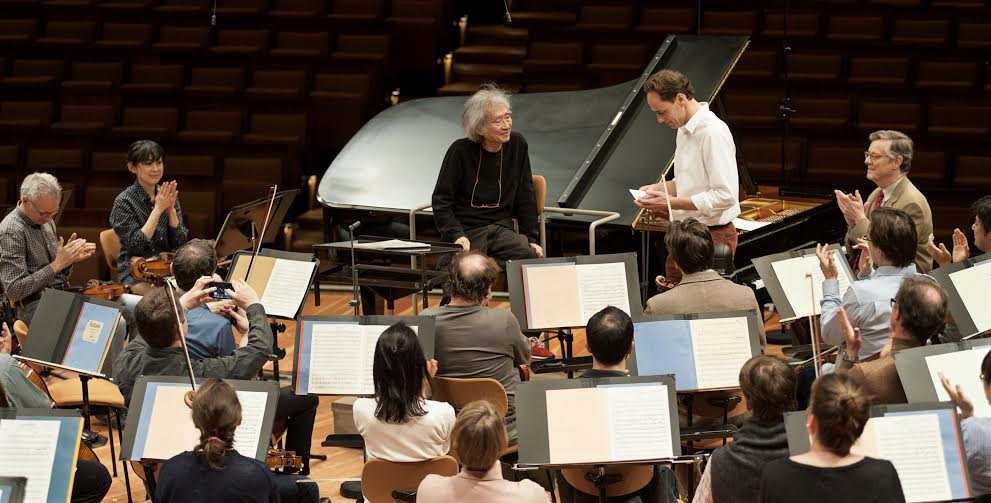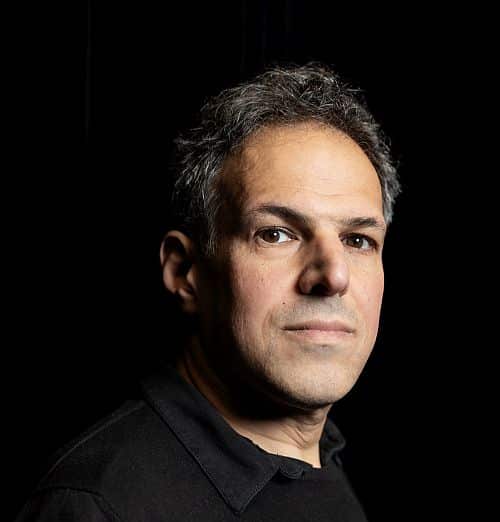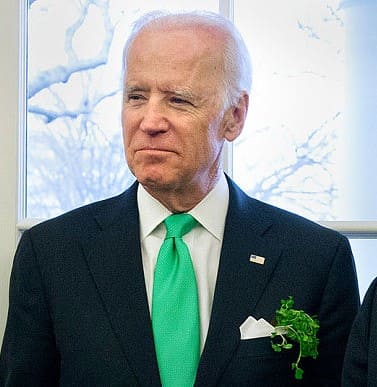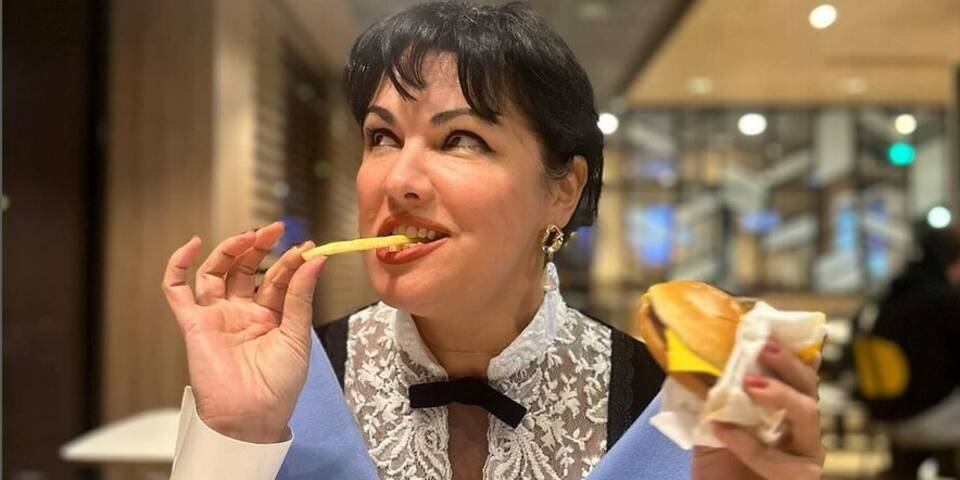Tributes abound for much-loved Seiji Ozawa
RIPFrom his Boston successor Andris Nelsons:
Seiji Ozawa was one of the warmest, kindest, and most generous people I have ever had the privilege of meeting. He was a great friend, a brilliant role model, and an exemplary musician and leader. He has been an inspiration to me all my life and I will miss him dearly.
From his record label:
It fills us with incredible sadness that Seiji Ozawa – one of the greatest musical minds of our time and ultimate master of sensuous sound – has passed. His rich and lasting recording legacy on Deutsche Grammophon has spanned over half a century, featured leading orchestras across three continents and encompassed musical traditions as varied as the American, Austro-German, French and Russian schools. He will be greatly missed. Farewell Maestro.
Berliner Philharmoniker:
We mourn the death of our dear friend and honorary member Seiji Ozawa.
From Yo Yo Ma:
“For Seiji, music started with silence, a blank canvas. He would then paint and illustrate a whole universe in a way that the world had not seen before and rarely since. It is difficult to be a pioneer, and he did so with grace–serving as a source of hope and inspiration for me, especially as an Asian-American artist. To collaborate with him was to exchange intuition and emotion at the deepest level, but most of all I remember Seiji as a joyful, kind, caring human being.”
Vienna Philharmonic:
The Vienna Philharmonic mourns the loss of our honorary member Seiji Ozawa, one of the great conductors of our time. We look back with gratitude and love on many concerts and opera performances together, especially on our tours through Japan.
Our collaboration with Seiji Ozawa began in 1966 at the Salzburg Festival. Over five decades we performed an incredibly broad repertoire, ranging from the Baroque to the masters of Viennese Classicism and Romanticism to the modern era, with concerts and premieres by contemporary composers. A special highlight was the 2002 New Year’s Concert in the Golden Hall of the Vienna Musikverein, and as a sign of our close artistic and personal ties, we awarded him honorary membership of the orchestra in 2010. In our final concert together, he conducted the slow movement from Mozart’s Divertimento KV 136 as part of the Japan tour in autumn 2021.
Professor Daniel Froschauer, board member of the Vienna Philharmonic: “We are happy to have experienced so many artistic highlights with Seiji Ozawa. It was a gift to be able to go on a long journey with this artist, who was characterized by the highest musical standards and at the same time humility towards the treasures of musical culture as well as his loving interaction with his colleagues and his charisma, which was also felt by the audience. He left a great artistic legacy with the Vienna Philharmonic. We will sorely miss Seiji Ozawa as a friend and musical partner. Our thoughts are with his family.”
Boston Symphony Orchestra:
With great sorrow, the Boston Symphony Orchestra announces the death of its beloved Music Director Laureate, Seiji Ozawa. The Boston Symphony Orchestra’s longest-serving conductor, holding the title of Music Director for 29 years (1973–2002), Maestro Ozawa died February 6, 2024, in Tokyo. He was 88 years old.
One of his generation’s most sought-after and celebrated conductors, Maestro Ozawa was born in Shenyang, China, in 1935 and from a young age studied piano and then conducting (under Hideo Saito) in Japan. He burst upon the musical scene in 1959, winning First Prize at the International Competition of Orchestra Conductors held in Besançon, France, and was invited the next summer to Tanglewood by then BSO Music Director Charles Munch, who was a judge at the competition. Later mentorships with Leonard Bernstein and Herbert von Karajan quickly propelled his career to directorships of the Toronto Symphony, San Francisco Symphony, Chicago Symphony’s Ravinia summer festival, and finally the Boston Symphony where, in 1973, he became the orchestra’s 13th music director, succeeding William Steinberg.
Under Seiji Ozawa, the Boston Symphony entered a global era, through a renewed commitment to commissions and contemporary music, a prolific number of recordings, radio, and television appearances, and history-making tours. He championed many of the most important composers of the late 20th century, including Henri Dutilleux, Peter Lieberson, Olivier Messiaen, and Toru Takemitsu; a total of 44 compositions were commissioned under his tenure, three of which went on to win Pulitzer Prizes in Music. Award-winning recordings of more than 140 works were also among his extraordinary output, featuring distinguished artists such as Yo-Yo Ma, Jessye Norman, Itzhak Perlman, and Peter Serkin. He won two Emmy Awards: in 1976, for PBS’ Evening at Symphony and in 1994, for Individual Achievement in Cultural Programming for Dvořák in Prague: A Celebration.
Other major highlights of Maestro Ozawa’s BSO tenure included a groundbreaking 1979 tour to China; the opening of Ozawa Hall at Tanglewood in 1994 in his honor; a global performance of Beethoven’s “Ode to Joy” with six choirs performing on five continents for the opening of the 1998 Winter Olympics in Nagano, Japan; and a jubilant millennium extravaganza performance at the foot of the Eiffel Tower in Paris.
The Boston Symphony Orchestra remembers Maestro Ozawa not only as a legendary conductor, but also as a passionate mentor for future generations of musicians, generously offering his time to education and master classes. Even after his departure from the Boston Symphony in 2002 (he was Vienna State Opera music director from 2002–2010), he retained a connection to Tanglewood and the Tanglewood Music Center, leading the TMC Orchestra in several performances. This all complements his important work in Japan with the Saito Kinen Orchestra, which he co-founded in 1984, and the Seiji Ozawa Matsumoto Festival, both leading to the establishment of the Ozawa International Chamber Music Academy Okushiga to provide opportunities to outstanding students from countries in the region. Maestro Ozawa also founded the Seiji Ozawa Music Academy Opera Project in 2000 and the Seiji Ozawa Music Academy Orchestra Project in 2009, working actively to cultivate young musicians through performance. In 2005, he established the Seiji Ozawa International Academy Switzerland to educate European music students.
A kind and thoughtful humanitarian; a musical genius who combined a balletic grace at the podium with a prodigious memory (he conducted the 1983 world premiere of Messiaen’s massive opera St. Francis of Assisi without a score); and an inveterate lover of all things Boston and its sports teams: Seiji was all these things and much more to his fans around the world. His legacy lives on through our many fond memories, collective and individual, and his unforgettable recordings. We extend our deepest sympathies to Maestro Ozawa’s family, friends, and the classical music community.






Comments